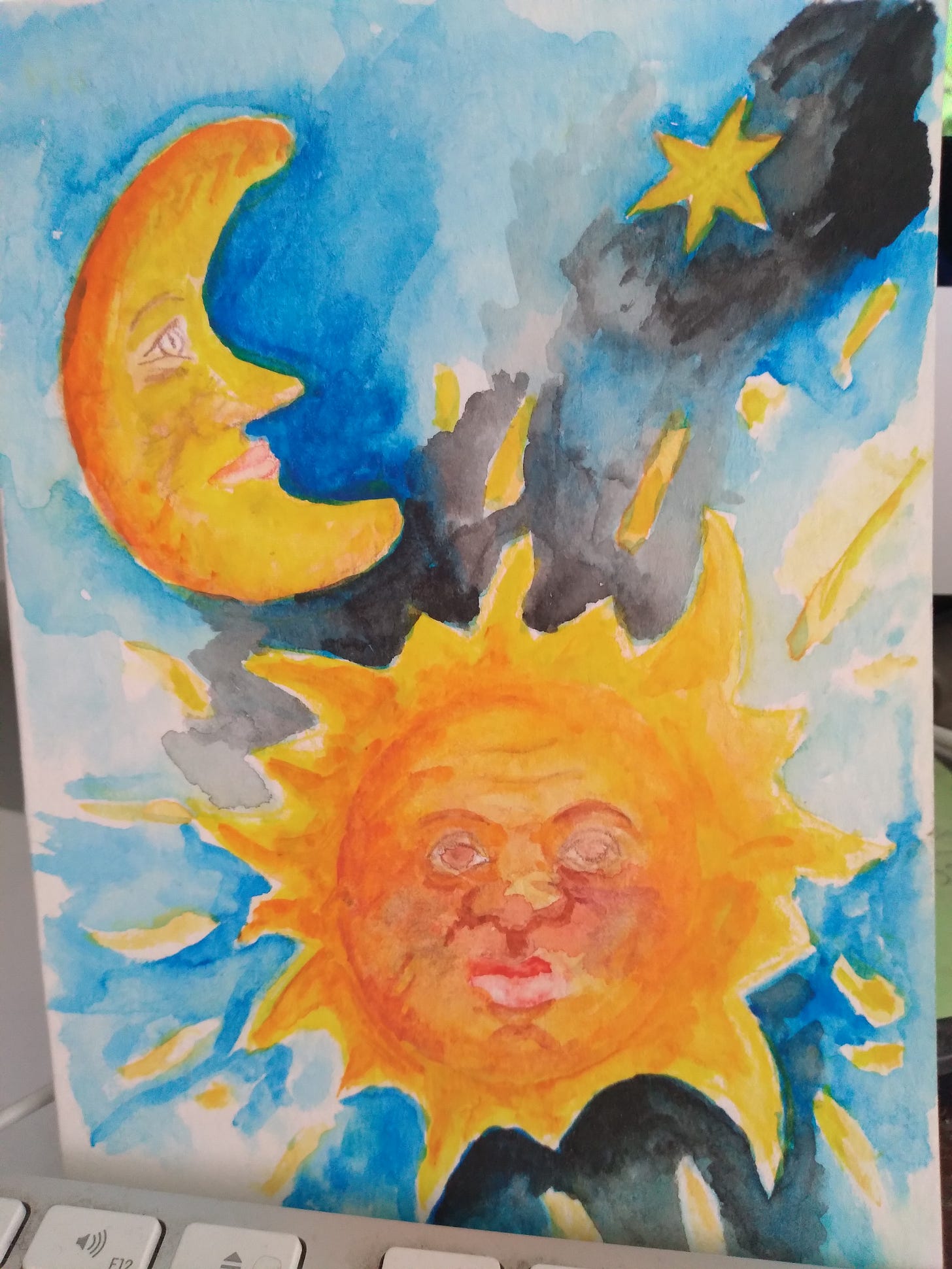Michael Davis
My sister, Carolyn, told me that our father told her the Holocaust was, to him, proof, that God did not exist. How could omnipotent God allow it to happen? Dad was simply following in the footsteps of “Enlightenment” writers such as Voltaire who, in the novel, Candide, ridiculed the idea of Leibniz that in this, God’s creation, “everything is for the best in this best of all possible worlds.” In Candide, Candide and his sister, both of whom live by this idea of Leibnitz, suffer one torture after another. This is supposed proof that this is not the best of all possible worlds. However, it seems to me that Dad, Voltaire, and many others, are making the assumption that if God did exist, He would want humans to live a more or less happy life not marred by terrible injustice. So, we have proof that either God does not exist, or this is NOT God’s plan for humanity.
Coming to know about Sri Ramakrishna, I went from being an atheist to a believer. In my opinion, his level of joy just could not be explained by anything earthly. I was swept off my feet and then began to desire also to experience that incredible joy, something he, Sri Ramakrishna, said was not only possible but, in fact, the point of it all.
Before I came to Sri Ramakrishna, I first encountered the works of Meher Baba, a spiritual leader from India who was popular in the United States in the 1960’s. He seems to have been a kind of Sufi for the publisher of some of his books is “Sufism Reoriented.” In a book of short poetic statements called The Everything and the Nothing, the very first entry gives the purpose of it all:
“God is Love. And Love must love. And to love there must be a Beloved. But since God is Existence infinite and eternal there is no one for Him to love but Himself. And in order to love Himself He must imagine Himself as the Beloved whom He as the Lover imagines He loves.
“Beloved and Lover implies separation. And separation creates longing; and longing causes search. And the wider and the more intense the search the greater the separation and the more terrible the longing.
“When longing is most intense separation is complete, and the purpose of separation, which was that Love might experience itself as Lover and Beloved is fulfilled; and union follows.”
What an incredible imagination God must have to do all this!
Complainingly, someone told Sri Ramakrishna about an atrocity. In response, he said, “Is it ever possible to understand God’s action and His motive? He creates, preserves, and He destroys. Can we ever understand why He destroys? I say to the Divine Mother: ‘O Mother I do not need to understand. Please give me love for Thy Lotus Feet.’ The aim of human life is to attain bhakti (my emphasis). As for other things, the Mother knows best. I have come to the garden to eat the mangoes. What is the use of my calculating the number of trees, branches, and leaves? I only eat the mangoes; I don’t need to know the number of trees and leaves.” (The Gospel of Sri Ramakrishna, p. 131.)
Bhakti is pure unalloyed love of God. Once one has developed bhakti, God-realization is assured. It has to come. Sri Ramakrishna says that just as the rosy dawn indicates that the sun will soon rise, likewise bhakti indicates that realization is soon to come. Thus, what Sri Ramakrishna is saying does not differ from Meher Baba. It’s a love affair. Eating the mangoes is enjoying bhakti. There is nothing better. Spending our time trying to understand why Mother has created a world with much pain is equivalent to counting leaves, a useless activity (something I’m doing right now). Nevertheless, it seems to flow logically that if the aim of human life is to attain bhakti, this must be why God created the universe: So that humans could show up and develop bhakti.
Swami Aseshananda, for many years the leader of the Portland Vedanta Society, said that Swami Turiyananda, a monastic disciple of Sri Ramakrishna, would often refer to the following verse: “The purpose of human life is to taste the bliss of jivanmukta (liberation-in-life) and not to go after the fulfillment of any worldly desires.” “Otherwise (said Turiyananda), why should the Atman, which is ever-free, desire to be born in the world?” (Stories of Vedanta Monks, vol. 1, p. 304)
The Mother creates the universe so She can play this game (this lila) of hide and seek with Herself. Who can say why She has ordained this lila? Really, I don’t have to know. Infinite bliss is awaiting me regardless of the reason She did all this. But it seems She likes this fun. All the misery is more than worth it in the end when one finally tastes that incomparable bliss. A good adventure story must have obstacles and trials to be overcome. I’m enjoying the fun regardless of why it all has happened.


When asked why God created man, Maharaj replied simply, “So that man could love God.”
Love searchs and finds! A desirable alternative to the often taught adage that Brahman fell asleep as a reason for ignorance and perceived separation.